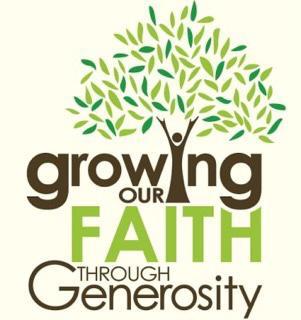Now we have to shape what some have started calling; The Church at Home. Although I keep asking myself; What do those who do not have a home do? For this reason, at the same time, I am declaring today in our Holyrood Church a Lenten day of prayer, fasting and reading the Bible in the Time of the Coronavirus.
Rather, the parable of Jesus highlights God's generosity

Good morning, happy Wednesday, and many blessings my dear Holyrood.
Today’s Gospel (Matthew 20: 1-16) presents a parable which is found only in Matthew’s Gospel. It is not in the other Gospels. Like in all parables, Jesus tells a story about daily elements, daily things of the life of the people. He presents a picture of the social situation of His time, in which the listeners recognize themselves. At the same time, in the story of this parable, there are things which never take place in the reality of the life of the people, because speaking about the master, Jesus thinks about God, about His Father. This is why in the story of the parable the master does things which are surprising which never take place in the daily life of the listeners. In this strange approach of the master, it is necessary to find the key to understanding the message of the parable.
One traditional interpretation of the parable has been to focus on 20:16 (“the last will be first,” etc.) and to insist on understanding the parable as a statement about the gift of eternal life, as the ultimate equalizer, that will be granted to all “laborers in the vineyard.”
But Jesus’ parable seems to be more mundane than that and may require an alternative subtitle.
From our contemporary context, this parable brings to mind issues of immigration and daily laborers. What is “fair” for those who work among us as migrant workers or labor in the various service industries supporting Western financial institutions, the highly educated professional class and our capitalist technologically-driven economic complex? And what is to us if the minimum wage rises to assist those workers on the lowest end of our economic system?
The parable also played out in the story that followed the parable (21:17-28): Jesus predicted his death to the disciples for the third and final time (cf. Matthew 16:21; 17:12; 17:22-23). Right after this prediction, the mother of James and John requested special privilege for her sons (rather than a direct request from James and John themselves, as in Mark 10:35-45). They, too, “have borne the burden of the day” since they’ve been with Jesus from the beginning of his mission.
In this following story, we hear the concern -- and, perhaps some of that “envious” spirit -- from the other disciples. But, Jesus warned them as well: greatness comes through service (cf. Matthew 20:25-28). God’s generosity will not succumb to human jealousy. As Matthew’s Jesus preached earlier, God provides rain for the just and unjust alike (cf. Matthew 5:45).
So, the parable is really not about the “laborers in the vineyard.” In fact, this is not even a story about the growth of the vineyard. Nor was there any significant attention on the activities of the workers. We hear the complaints of those who have toiled all day long, but the story was really not about them either.
Rather, Jesus’ parable highlights the generosity of God. As the ultimate “landowner,” God will use what has always belonged to the Creator for the good of all even if humans fail to view the world through God’s eyes. In Jesus earlier words: God’s perfection is exemplified in God’s rain on the just and the unjust (cf. 5:48). The landowner’s question in the parable is Jesus’ punchline for the story: “Are you envious because I am generous?”
Blessings,
Fr. Luis+
- Log in to post comments
